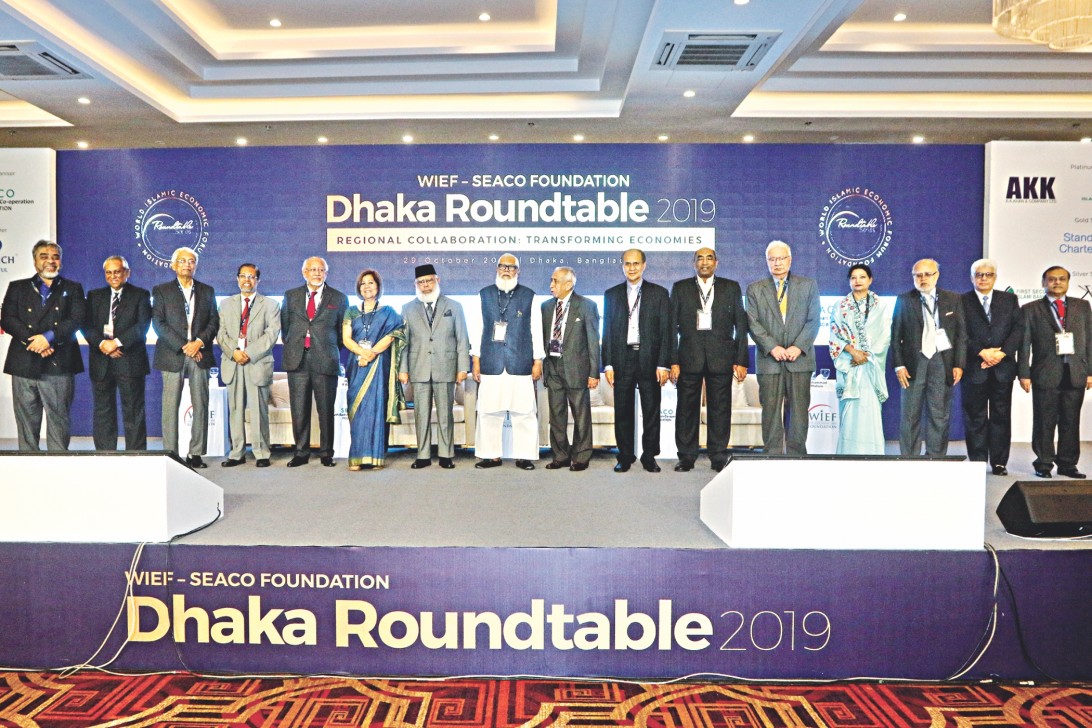Cooperation to boost regional trade

Cooperation between South and Southeast Asian Muslim nations will immensely benefit the region, including non-Muslim nations, speakers said.
They said the cooperation will increase business and regional connectivity.
The halal food industry in Muslim countries holds huge potential, a market non-Muslim countries can take advantage of, said Salman F Rahman, prime minister’s private industry and investment adviser.
He was addressing the opening of a two-day roundtable on “Regional collaboration: transforming economies” organised by World Islamic Economic Forum (WIEF) Foundation and South East Asian Co-operation (Seaco) Foundation at Radisson Blu Dhaka Water Garden.
Rahman said Bangladesh has set challenging goals to turn into a middle income country by 2021 and a developed nation by 2041.
“We identified the ways to achieve the goals -- first we need to develop skilled manpower, secondly we need investment from public, private and foreign sources and thirdly we need regional and international cooperation,” he said.
“We are offering skills development training to build up manpower that will provide services to Bangladesh and other countries,” he said.
He further said the government was preparing to face challenges of the fourth industrial revolution adopting a policy to create a “Digital Bangladesh”.
The government is investing a lot behind technical education to generate graduates who would be the skilled manpower necessary for the industry, he said.
Regarding success in agriculture, Rahman said despite having a limited amount of cropland, Bangladesh has been able to ensure self-sufficiency in food production.
Now the government has undertaken a plan to set up 100 economic zones which would house industrial units in a coordinated manner, saving cultivable land and stopping unplanned industrialisation.
He said the government was committed to creating an investment-friendly environment for local and foreign investors in the zones as well as providing incentives.
Salahuddin Kasem Khan, executive chairman of Seaco Foundation, said regional cooperation, connecting national economies, could help develop communities socially and economically through trade, investment and tourism.
He said Islamic finance was a burgeoning sector with assets estimated to grow to $3.8 trillion by 2023 from $2.4 trillion in 2017. Bangladesh’s strategic location gave it trade advantages in the South and Southeast Asian regions, he added.
Khan also said, with a GDP worth $300 billion, Bangladesh’s economy would gradually turn stronger with rising purchasing power.
Indonesia and Malaysia can take advantage of this by increasing investment as domestic consumption in Bangladesh is increasing, he noted.
Wan Mohd Zahid Bin Mohd Noordin, chairman of WIEF Education Trust, said regional cooperation was increasing connectivity among member countries which would help boost business and national economic development.
Zahid said their organisations as well as OIC member states should work for the common interest, in a way the European Union does, which would benefit regional cooperation.
He called for taking up practical programmes for implementation under regional cooperation to develop the private sector.
Mohmmed Mohsin, chairman of Seaco Foundation, said the OIC members need to take initiatives to enhance regional trade, investment and overall cooperation in South and Southeast Asia.
He said Seaco Foundation was basically a private sector platform giving emphasis on regional cooperation and investment for economic development.
Around 300 representatives from Brunei, Indonesia, Malaysia, the Maldives, Singapore, the UK, the UAE and Turkey are participating in the event.
